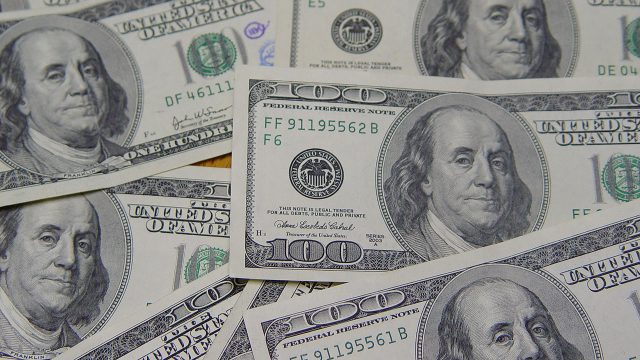
The Philippines should brace for a credit rating downgrade next year after Fitch Ratings adjusted its outlook to negative from stable on dimming growth prospects, an economist from ING Bank N.V. Manila said.
“Should growth momentum stall and fiscal and external metrics deteriorate further over the coming months, the Philippines may be in line for a foreign currency credit rating downgrade by July 2022,” ING Bank Senior Economist Nicholas Antonio T. Mapa said in a note on Friday.
“An outright sovereign credit downgrade for either the Philippines or Indonesia would in some cases bring them to the edge of the investment grade universe (BBB-), one misstep away from a likely heavy sell-off should either of them lose their investment grade status,” he added.
The Philippines would likely fare worse than Indonesia, which expects its deficit to ease to 5.7% of economic output this year. On the other hand, the Philippines continues to struggle to contain its budget ceiling of 9.3%.
Mr. Mapa said the coronavirus upheaval threatens the government’s goal to keep its deficit cap and fiscal consolidation, with a debt stock at 60.4% of economic output of June.
A prolonged recession could result in long-term scarring effects that may prompt the government to further increase its spending, he said.
“We can expect rating agencies to monitor nations with slowing growth as this translates to soft revenues, wider fiscal deficits and ultimately higher debt levels,” he added.
After the economic grew by 3.7% in the first half, Philippine economic managers slashed their growth target for the year to 4-5% from 6-7% as the outlook dimmed.
Mr. Mapa expects the Bangko Sentral ng Pilipinas (BSP) to extend its debt financing scheme until next year due to the government’s widening deficit and to support economic rebound.
“This could complicate the central bank’s exit strategy as fiscal authorities become increasingly dependent on central bank financing,” he said.
In a separate note on Friday, Capital Economics Asia Economist Alex Holmes said the Philippines is headed for the opposite direction compared with its peers, as the country continues to suffer from a worsening COVID-19 outbreak. The threat of the Delta variant in other Southeast Asian economies appeared to have reached its peak.
He said this could push the BSP to bring down its key policy rates further next month.
Offshore, Mr. Mapa said the country is also bracing for a possible worsening of its current account, especially with the peso depreciating against the dollar as the US central bank taper its bond purchases and raise interest rates.
J.P. Morgan said in a research note on Friday that country’s current account balance could post a $2.7-billion deficit this year and widen further to $5.9 billion next year.
The widening current account deficit is driven by the failure of imports to return to pre-crisis levels and a stalled rebound in exports.
Fitch Ratings revised its outlook for the Philippines to negative from stable in July, but kept its BBB credit rating, as the prolonged pandemic threatens the economy.
S&P Global Ratings in May kept its BBB+ investment grade rating for the country with a stable outlook. Moody’s Investors Service affirmed its rating of Baa2 with a stable outlook in July last year.
Meanwhile, the Philippines was included in Nomura’s “troubled 10” list of emerging markets that are vulnerable to changes in monetary policy in the United States and slowing growth in China.
Nomura economists Rob Subbaraman and Rebecca Wang said in a research note the country joins Brazil, Colombia, Chile, Peru, Hungary, Romania, Turkey, South Africa and Indonesia on the list.
They said emerging markets were still highly vulnerable when loose monetary policies begin to tighten due to their weak economic growth, high inflation and worsening fiscal balance, even as real policy rates remained negative.
The slowdown in China’s economy is also a risk for emerging markets, coupled with a “growing emerging market bank-sovereign debt nexus that raises the risk of a so-called bank-sovereign doom feedback loop that was at the heart of the 2009-2010 European debt crisis.
“We believe the economic fundamentals in many emerging market countries have deteriorated over the past year and are likely to worsen further in the year ahead, heightening the risk of financial crises as global rates rise,” the analysts said.
Philippine credit downgrade imminent — ING
Source: Bantay Radio
0 Comments